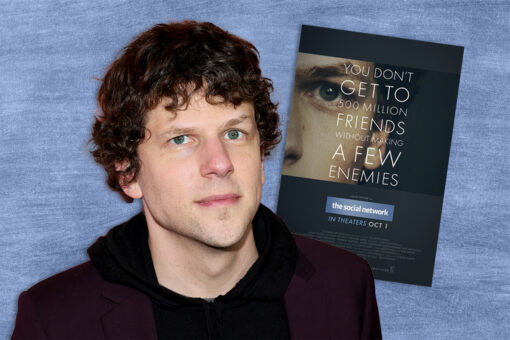I only learned about Mac Miller after his death. It was March 2020, and I was sad, quarantining in my childhood home and studying Shakespeare over Zoom as COVID-19 ravaged the planet. That month, I discovered Miller’s album “Circles,” released by REMember music and Warner Records two years after his 2018 passing.
Perhaps it is incongruous that I, a liberal arts student obsessed with all things Chimamanda Ngozi Adichie and Sylvia Plath, would take such a strong liking to the Jewish rapper, who is infamous for his frat bro popularity and songs like “Lucky Ass Bitch.” But Miller entranced me. I was shocked and mesmerized by the deep sadness of “Circles” and its lonely self-deprecation. I understood what he meant.
Now, seven years after its 2014 release, Miller’s first mixtape “Faces” is in the world again, on vinyl and streaming platforms for the first time ever. As soon as I heard about the impending re-release, I counted down the days, eagerly waiting to hear what one of my new favorite musicians sounded like in the early stages of his artistic development.
“Faces” does not disappoint. The mixtape is resplendent, exploring drug addiction, love, deep depression and explicit sexuality. But what most struck me about “Faces” was its feverish, cavernous Jewishness. Mac Miller was not a “Jewish” rapper in a traditional sense — he was no kippah-clad Matisyahu. Yet in “Faces,” I could not help but recognize, in line after line after line, a labyrinthine web of Jewish references, values and ideas that can help us understand Miller’s own conception of Jewishness, especially when it comes to death.
To be frank, everything I think about Mac Miller’s “Jewishness” might be wrong. I cannot know what he was thinking when he wrote “Faces” in the basement studio he called his “sanctuary,” or whether he thought at all about Jewish survival and continuity and philosophy and all those other formal terms. I can only know how “Faces” makes me feel. We say that art lives on forever, and the place where it lives on is our minds. In my mind, “Faces” is about Jewish survival — and is an intimate window into a Jewish man thinking about death.
On the surface, “Faces” is filled with biblical and religious references. In “Malibu,” Miller raps, “Let’s hold hands and sing the Bible / That’s a violent song.” In “Funeral,” he questions, “You mean to tell me God took seven days / And all he made was you?” “Somebody said that I deserve to die,” Miller raps in “Uber,” continuing with, “I looked him in the eye and said the devil’s not circumcised.” In “Inside Outside,” the mixtape’s first track, Miller strikingly likens himself to Jesus: “Shoulda died already / For my sin, shoulda been crucified already.”
But for me, the Jewishness of “Faces” Jewishness transcends mere references. Why, for example, does Miller open the album announcing that he “shoulda died already”? Listeners could interpret this simply as a nod to the risks of drug use. But I am tempted to contemplate the line in the context of Miller’s Jewish identity. Perhaps, behind his knowledge that drugs can lead to premature death, Miller believes he “shoulda died already” because he descends from Jews, from our long lineage of death.
“On the inside / I’m outside,” Miller raps in the same song. How could anyone more concisely express the condition of the 21st century Jew? Because he was white, and a man, and had money from his success, Miller was “inside.” He was a powerful person with wealth, safety and privilege. Still, Miller was “outside” in the way that Jews have always understood ourselves to be. Once strangers in the land of Egypt, we will always remember the stranger. We may make our way inside, but we will always be outside, too.
In “Grand Finale,” Miller speaks of his “old Jewish mind,” perhaps a reference to his website OldJewish.com, where “Faces” was first released. Yet, maybe this is also his term for Jewish consciousness, for the peculiar situation of today’s young Jews who, despite lacking personal experience with the horrors our ancestors faced, cannot help but feel a generational anguish that exceeds the words which might describe it. As he raps in “Friends (feat. ScHoolboy Q),” “We only grow from anguish,” a decidedly old Jewish thing to say.
Some critics disapprove of the notion that Miller’s demise was inevitable, that he predicted it. But he did, over and over again. “Suppose I’ll die alone from an overdose of some sort,” Miller posits in “San Francisco.” “I’m a bit surprised that I’m even still alive,” he admits in “Grand Finale.” I think that these lines, in their prophetic poignancy, can also be situated in Jewishness. To be Jewish is to be aware of death; it is to welcome death because we have known death. It is to think and imagine and create, not despite, but because of, death’s inevitability. It is to sing in death’s face.
“Not a king, I’m no David,” Miller raps in “Grand Finale.” The line hearkens back to King David, known as the “sweet singer of Israel” for his sacred songs and hymns. Mac may not have thought so, but I believe that he is one of many Davids, a sweet singer of the Jewish people.
The very fact of the re-release of “Faces” speaks powerfully to art’s promise for Jewish continuity. The mixtape was unavailable for years, languishing alone with no one to hear it. But it has survived, and now we can know it again.
“We are the creatures, prophets and teachers / We are believers, lost in amnesia,” Miller sings in “Yeah.” This, ultimately, is the Jewish vision I believe in. Perhaps we are “lost in amnesia,” struggling to find ourselves in Jewishness. But through art, we can literally re-remember our past. We can put the pieces back together. In doing so, we will create our future.
Uncannily, “we will survive” is the last line Miller sings in the album, at the closing of “Yeah.” This is Mac’s demand. Through creation, through art, we will and must survive. Believing in Mac’s vision, I will keep listening to, looking at and imagining Jewishness and all its revelatory, time-bending, ever-renewing faces and know: We will survive.



